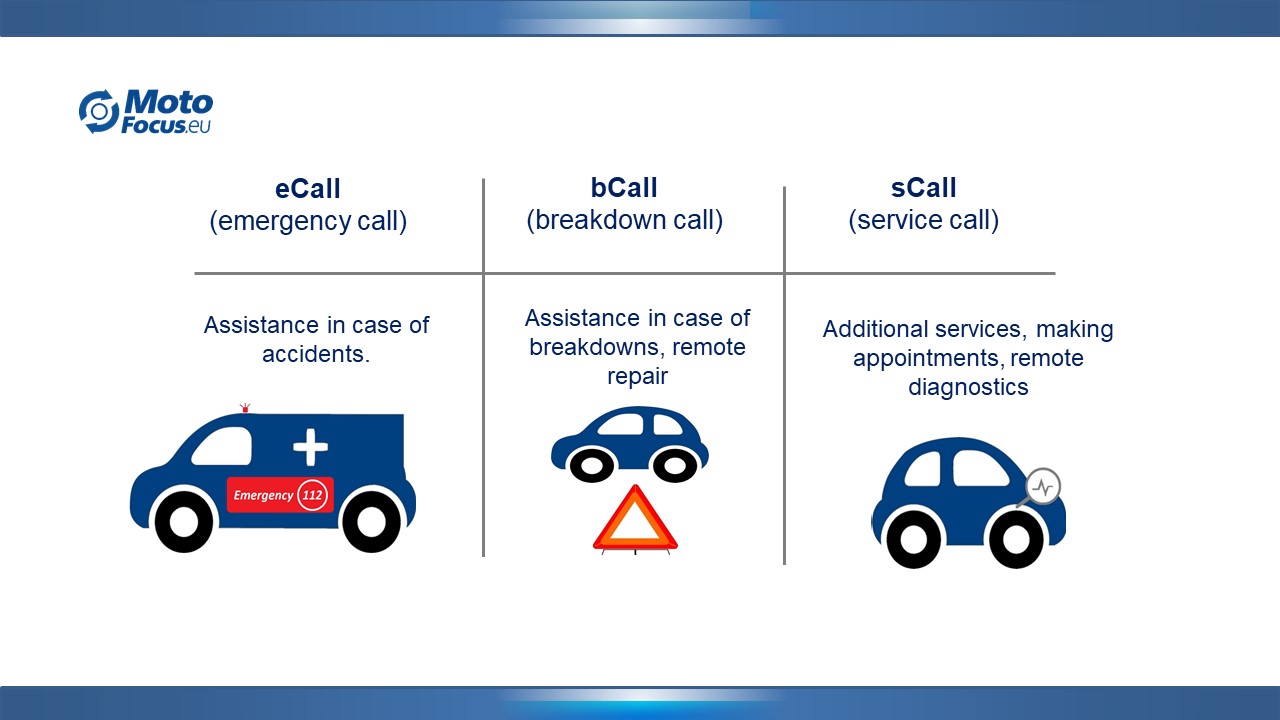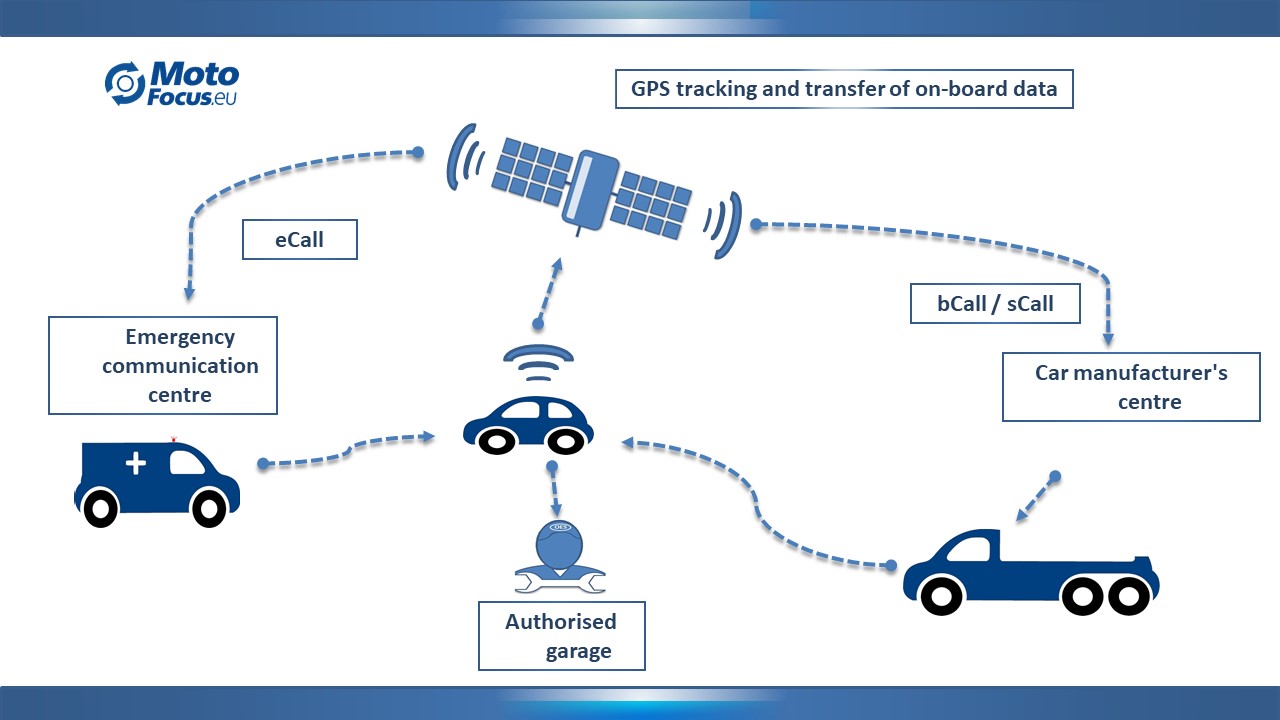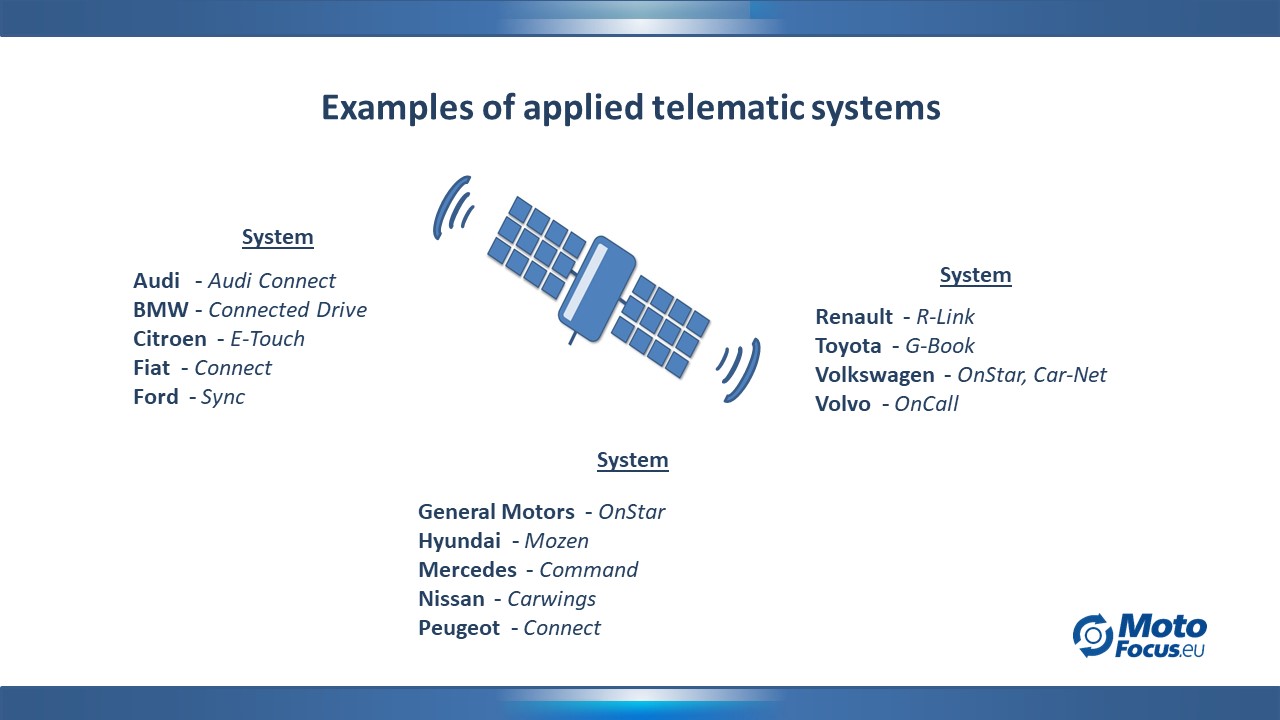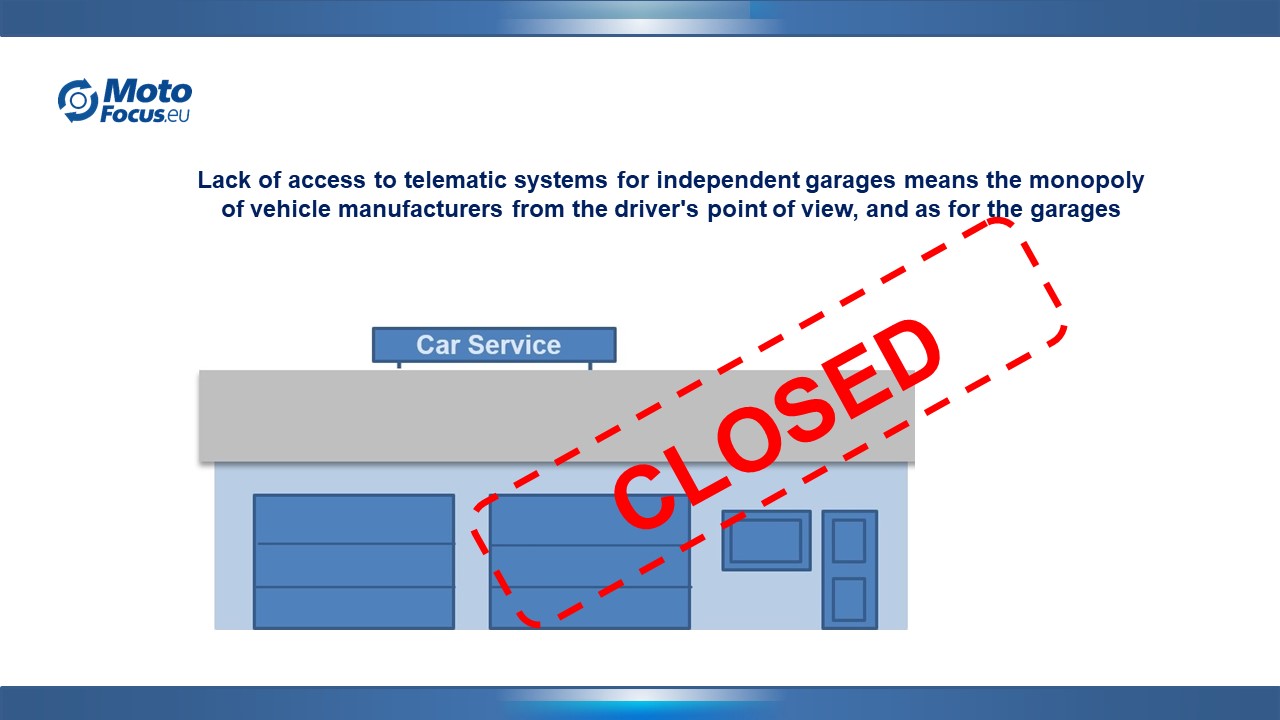My car – my data – my choice: the driver doesn’t know it
Modern vehicles collect data on car owners and their behaviour, which can also be transferred remotely. It turns out that most drivers don’t realise that. Nor do the drivers know that telematics may soon deprive them of their right to choose – e.g. the garage where they can repair their car.
Today’s vehicles are equipped with sensors that read and record everything – from driving styles, acceleration and braking to emissions and engine hours. The systems also track the vehicle position using GPS, while sensors in seatbelts or seats allow for determining the number of passengers.
Many modern vehicles are equipped with wireless technology transferring data on the vehicle’s technical condition directly to the car manufacturer. This data can be used for remote diagnosis and even repairing or scheduling appointments in the garage. This technology is called telematics.
The main functions of telematic systems.

See how it works in practice.

Telematic systems allow car manufacturers to monitor vehicles remotely even before the driver becomes aware of the need to repair the vehicle.
… and this is how it should work in practice to avoid monopolisation.

The use of telematics and consumer rights
So far, the issue of accessing and using data generated by cars hasn’t been regulated at the European level. Although the current regulations state that such data constitutes the property of car owners, the owners cannot really access it. The access depends only on the goodwill of vehicle manufacturers.

Industry organisations associated with the independent IAM market at the European level, e.g. FIGIEFA, have been reporting the immediate need to introduce regulations guaranteeing fair access to data for all entities from the automotive industry. Unfortunately, without success.
Consumers want to manage data, but lawmakers aren’t responding.
Some might say that we agree to the commercial use of data about our lives by accepting the terms of use of our smartphones. However, when we need take a broken smartphone to the manufacturer’s authorised repair shop to have it repaired, we will feel it to a lesser extent than when we need to choose an authorised service centre for the same reason to have our car heavily repaired. Of course, in both cases, the consumer should have the right to choose who should repair their product.














